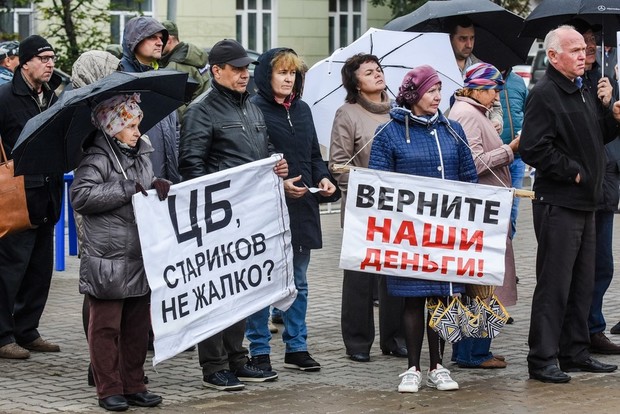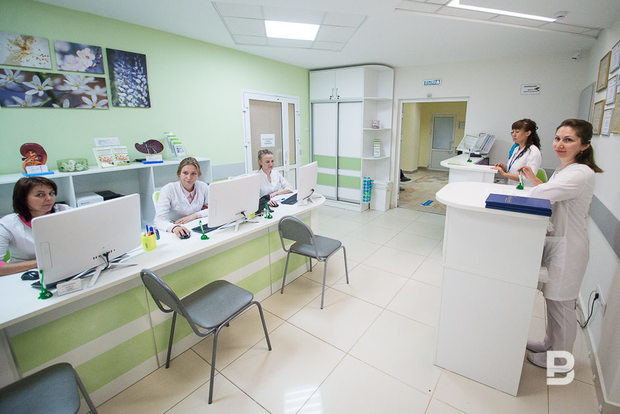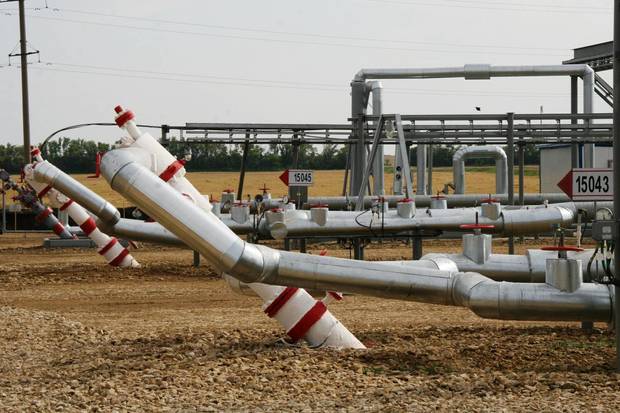''Work, brothers'': President of Tatarstan announces the transitional message
There won’t be the agreement with Moscow, but we will try to defend the Tatar language
A lot has changed for Tatarstan after the previous message to RT State Council, announced exactly a year ago. The president had a difficult task — on the one hand, it was necessary to reflect on everything that had happened over that time and to understand where we were moving or, on the contrary, were frozen in anticipation of something that we cannot change. On the other hand, to designate that everything is under control, there is no reason to relax, and the way out is to work even harder. So it was, the message in 2017. Read about its content in the material of a correspondent of Realnoe Vremya Rustem Shakirov.
Post-Universiade Tatarstan ends
Last year's message was delivered in sort of another Tatarstan, probably it can be called post-Universiade. Those Tatarstan, where everything was only progressing and developing, hosted the Universiade and the World Aquatics Championships, smoothed religious extremism after the assassination of the leaders of the Muftiate, opened Innopolis and set itself some more ambitious objectives. In those Tatarstan, where they could publicly complain about the injustice of the system of interbudgetary relations or demonstratively to withdraw from the list of the United Russia at the elections in the State Duma of the Russian Federation not only the first ''steam engine'' but also the second (it is an exceptional case), having realised that in the parliament it would not play the desired role.
We will remind what happened over that time: the banking crisis; the saga of non-renewal of the treaty between Tatarstan and the Russian Federation, the line to which was drawn by First Deputy of the Presidential Administration of the Russian Federation Sergey Kirienko: ''Modern Russia has not a contractual statehood''; the intervention of Vladimir Putin in the language issue. In fact, in political terms, over the year in the region only the subject of the message has not changed – it is still the president, not the head of the region. Of course, it is not about a total ''detatarstanisation'' yet. It would be possible to tell about it if someone actively started to claim the economic assets of the republic, but it is clear that such scenario should not be excluded.
How did Minnikhanov comment on all this in his hour-long speech? In the traditional manner of the last fifteen years: we will concentrate on economic growth and improvement of the quality of life of the citizens. It was stated in the first, almost ritual, part of the massage, ''The Republic of Tatarstan continues its sustainable growth, takes a leading position in the country by several social-economic results, ensuring comfortable conditions for life and businesses.''

Working on ''ensuring favorable conditions'' in the current situation is the most reasonable and, perhaps, the only possible tactic. Therefore, the second block of the message was devoted to ''working with people'' in the broadest sense of the word — the president told about a ''growing influence of citizens and their associations in the process of making and implementing decisions'', ''broad use of modern feedback mechanisms and involvement of citizens, support of their initiatives'', ''public building of key objectives and indicators of public authority activities, as well as control over their execution''.
Then it followed a detailed analysis of the economic achievements, problems and prospects of Tatarstan. This vast texture was intended to demonstrate the focus on the economy as the basis for the proverbial quality of life.
At the same time, it was not announced any new high-profile project, and it would be strange to expect in terms of the overall uncertainty. Something reminiscent of the recent ambitious plans were again connected with projects on work with the population. Two greatest figures of the message were announced when the president spoke, firstly, about the regional programs aimed at improving the quality of life, of course — there are 37 of these programs, and 16 billion rubles have been allocated this year from the RT budget, and second, about the new, ''unprecedented'' program of capital repairs and equipment of all polyclinics in the region in two years (it will cost 7,5 billion rubles).
In this sense, the icing on the cake of antigigantomania was the fact that the main macroeconomic indicator – gross regional product – was not announced in absolute figures (Minnikhanov told only about a 4% growth this year). These trillions tell nothing for the population anyway.

The treaty has been postponed for an indefinite period
At the same time, the message contains not very accentuated moments, the meaning of which, apparently, will become clear later. ''The happening in the world contradictional changes and growing risks dictate the necessity of global strengthening of the Russian Federation as the common home for many peoples of our country,'' stated the head of Tatarstan. Then he added, ''There are reasons to assume that the election campaign will take place amid tough conditions of political, economic and informational pressure on our country. I am convinced that the threats will act as an additional impetus for consolidation of Tatarstan citizens and all constructive forces of the society aimed to defend the civilizational choice of Russia, consistent upholding of interests, support of the presidential policy on strengthening the strength of the country.''
Compare this with what a columnist of our newspaper and political analyst Boris Mezhuev told in a recent interview with Realnoe Vremya, ''There is a crackdown element. It refers to precisely regional managements. Let's us be frank, it is natural. We and our colleagues who were for ''civilised realism'' told in the 90s: as soon as the conflict with NATO reaches Russia's borders, the process of consolidation of power in the centre and regions will be very strict. Everything that is happening now in Russia including federal relations is considerably conditioned by reduction of space of the external Russian liberty.''
That is why the head of Tatarstan finally gave to understand that there would not be the treaty between Russia and Tatarstan for sure (''the maintenance of relations with the federal centre is more important than a form''), however making a reservation — under the current conditions. Thus the contract has been postponed for an indefinite period. That is why the message contained such forgotten words as ''unity'' and ''the unity of Tatarstan citizens'' and, as we have already seen, their ''consolidation''.

By the way, it is evident from the formulation of economic objectives — Minnikhanov almost à la Soviet (or à la Chinese) urged to abandon any external dependencies, including technology one:
''It is extremely important in terms of long-term action of external sanctions to strengthen our internal reserves for future growth,'' he said, and later added, ''In the oil industry of the country there remains a significant degree of import dependence on foreign technology in the development of tight oil reserves. Here we need a technological breakthrough.''
Critisism found to be reasonable
Finally, concerning the most sensitive topic, the language issue, the president actually said the following: we strengthen the teaching in schools of the Russian language, while maintaining the amount of hours of the Tatar language, what is more — in the teaching of the latter from now they will be focused on communication skills. He recognized that if the Tatar language was not taught in schools so poorly, the ''justified complaints of citizens'' would not occur.
Probably, at this moment in the air of the state soviet conference hall there hung the question — why a normal method of teaching the Tatar language, with the available scientific and educational resource, has not been developed over twenty years?